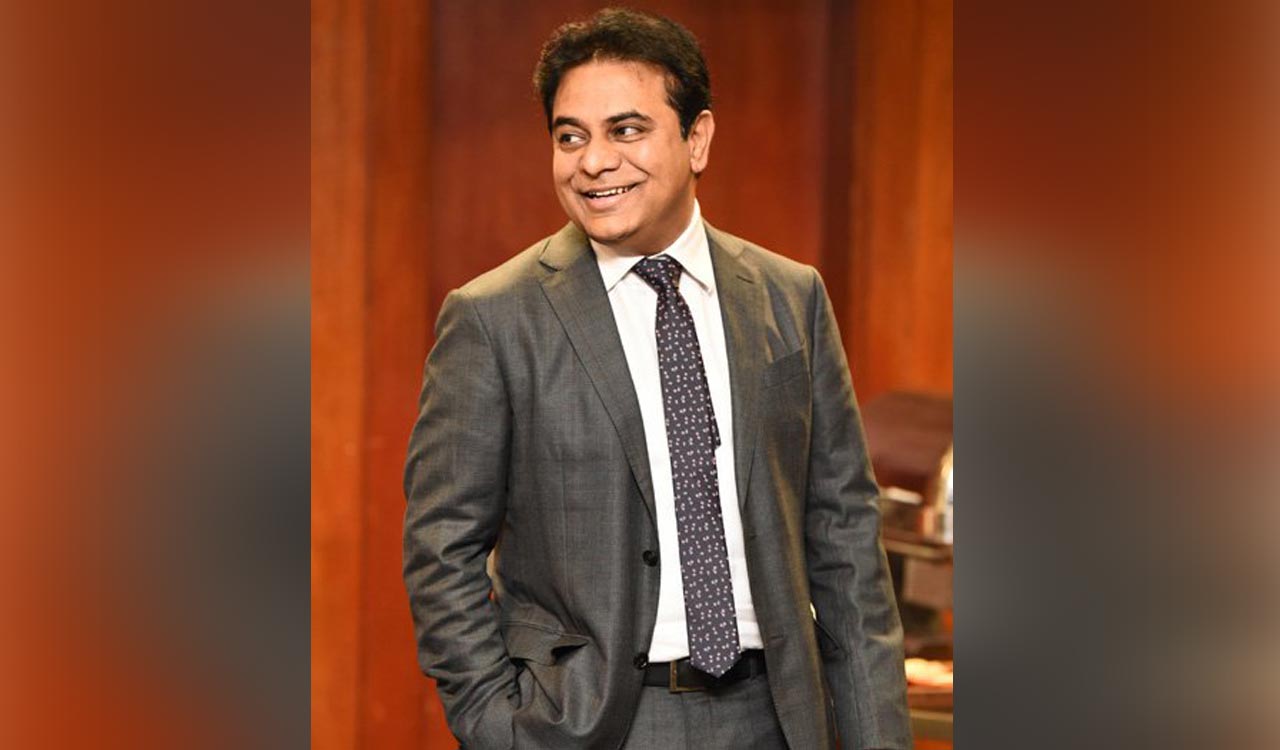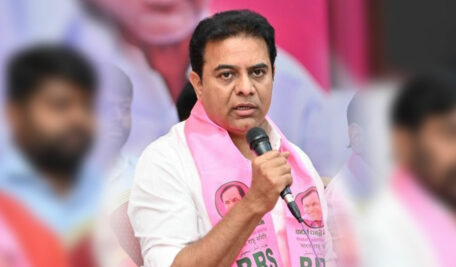Talent Transcends Tenure: Why KTR’s Voice Resonates on World Stages
Though no longer part of a ruling government and technically sitting in opposition, he continues to receive invitations to speak at the world’s premier economic and policy forums. That alone tells a compelling story: today, influence is forged not by office or party alignment, but by proven talent, clear vision, and the ability to deliver results.

By Kasarla Nagender Reddy
President, BRS Australia
In politics, formal power often dictates who gets the microphone. Yet, Kalvakuntla Taraka Rama Rao—better known as KTR—has repeatedly bucked that convention. Though no longer part of a ruling government and technically sitting in opposition, he continues to receive invitations to speak at the world’s premier economic and policy forums. That alone tells a compelling story: today, influence is forged not by office or party alignment, but by proven talent, clear vision, and the ability to deliver results.
From Regional Leader to Global Brand
KTR’s meteoric rise began in Telangana, where as IT and Industries Minister he championed path-breaking initiatives that fused technology with governance. Under his stewardship, Telangana introduced TS-iPASS, a single-window clearance system that guaranteed project approvals within 15 days—an innovation the World Bank lauded for improving India’s Ease of Doing Business rankings. He also launched “Meet & Beat,” a matching-package policy that offered potential investors terms at least as favorable as any competitor state, and in many cases better, to secure commitments from giants such as Amazon, IKEA, and Micron.
Those accomplishments cemented his reputation at home. But why does world forums reach out when he’s in opposition? Because the world sees beyond party labels: it recognizes a leader who turns policy into performance.
Davos and Beyond: Invitations on Merit
Since 2022, KTR has been invited to the World Economic Forum’s annual meeting in Davos—not once, but in three consecutive years. Such repeat invitations are rare even for sitting heads of government. The underlying message is clear: Davos wants concrete insights on how to replicate Telangana’s model of rapid, data-driven economic growth. They seek the person who designed the playbook, not merely the flag bearer of a political party.
Nor is Davos the only stage. KTR has addressed investor summits in London, technology symposiums in Singapore, and think-tank panels in Washington, D.C. Each invitation underscores the demand for his firsthand expertise on catalyzing investment, fostering a startup ecosystem, and leveraging digital infrastructure for social impact.
Vision and Execution: The Real Currency
What makes KTR’s voice so compelling is the blend of vision and execution. It’s one thing to write policy papers; it’s another to see a $2.4 billion investment from KITEX in under a week, creating tens of thousands of jobs. It’s one thing to promise a digital revolution; it’s another to roll out affordable broadband across rural districts via the T-Fiber initiative. When you can point to factories commissioned, jobs generated, and lives transformed, international audiences sit up and listen.
Moreover, his youth and dynamism resonate with the global discourse on tomorrow’s leadership. At forums where the conversation is often dominated by seasoned bureaucrats and entrenched elites, KTR brings a distinctly fresh perspective: that good governance can—and must—be agile, tech-savvy, and relentlessly people-centric.
Beyond Party Lines: Influence Redefined
KTR’s global standing illustrates a broader shift in how we define political influence. In an age of rapid information exchange, achievements speak louder than party whips. A former or sidelined officeholder can still wield substantial soft power if they offer proven solutions to universal challenges—whether it’s speeding up project clearances, scaling renewable energy, or jump-starting a startup culture.
This phenomenon also benefits domestic democracy. When an opposition figure is solicited by world leaders for insights, it pressures sitting governments to transcend partisan posturing and focus on outcomes. It reminds us that true political capital is earned through competence, not conferred by title alone.
The Road Ahead: Sustaining the Momentum
Questions remain: Can KTR translate his global influence into local impact now that he’s outside government? Will his critiques of incumbents carry the same weight as his policy blueprints once did? The answers will unfold in Telangana’s next legislative session and the outcomes of the policies he champions from the opposition benches.
Yet one thing is certain: his regular appearances on world stages have already reshaped the rules of engagement. Future leaders—whether in India or beyond—will take note: in the 21st century, genuine expertise, delivered with passion and backed by results, can transcend electoral setbacks and party politics.
Conclusion
Kalvakuntla Taraka Rama Rao’s journey from regional minister to globally sought-after speaker underscores a powerful lesson: real authority comes from what you achieve, not merely the office you hold. Even in opposition, his talent and skills continue to command international respect. In doing so, KTR exemplifies a new paradigm in political leadership—one where track record, vision, and tech-driven solutions earn you a place on the world stage, regardless of your party’s ticket. That is influence reimagined for our times.
Related News
-
KTR writes open letter to CM, demands budget allocations for six guarantees
-
Hyderabad Task Force arrests interstate burglary gang, seizes gold, silver, cash
-
Sangareddy court sentences two men to 20 years for transporting 850 kg ganja
-
Garbage collectors protest in Hyderabad over property tax garbage fee
-
Odisha government reviews protection of Lord Jagannath temple lands
4 hours ago -
Iran holds military drills with Russia as US carrier moves closer
4 hours ago -
This is taxpayers’ money: Supreme Court raps freebies culture
5 hours ago -
Hyderabad: Residents oppose Gandhi Sarovar Project over ‘forcible’ land acquisition
5 hours ago -
Australia level series as Indian women slide to 19-run defeat in second T20I
5 hours ago -
Karnataka beat Uttarakhand in semis, to face Jammu and Kashmir in Ranji final
5 hours ago -
Five Osmania varsity players in South Zone squad for Vizzy Trophy
5 hours ago -
Disciplined West Indies bundle out Italy with ease, tops Group C in T20 WC
5 hours ago




